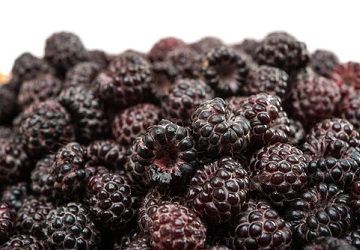Animal Study Shows that Black Raspberries Fight Oral Cancer
This early study, which was presented at the American Institute for Cancer Research's annual conference, may have implications for humans.

An early study presented Monday at the American Institute for Cancer Research’s annual conference establishes that black raspberries prevent oral cancers in rats.
According to a news release from the AICR, the study also “identifies key cancer-related genes that may explain (oral cancer’s) actions.” The study is in its early stages and hasn’t undergone peer review yet.
The Oral Cancer Foundation estimates that 48,250 Americans will receive an oral cancer diagnosis this year, causing more than 9,575 deaths. The foundation estimates that of the newly diagnosed, only about half will survive for 5 years.
In the news release, Steve Oghumu, PhD and lead author of the study, is quoted as saying, “Our study shows that feeding black raspberries to rats inhibits the development of oral cancer in an animal model.”
These findings may also be relevant to humans, researchers say, noting that preclinical and clinical trial results seem to suggest that the berries may thwart oral cancer in humans. The challenge, they say is understanding why—specifically, on a molecular level. It might have to do with genes that are “switched on or off” when the berries are eaten, the news release said.
“Our objective in this study was to see whether those same genes were modulated in the rat model so we could determine if we were seeing the same effects,” Dr. Oghumu said.
For the study, researchers fed rats with oral cancer on three different diets: a standard diet, one with 5% frozen black raspberries, and a diet with 10% frozen black raspberries. These groups were compared to another that included cancer-free rats.
After the study period concluded, researchers inspected the rats’ tongues and measured their blood for inflammation and apoptosis markers, which indicate cancer cell death. They discovered that the rats that ate the raspberries showed signs of cancer cell death and had lower inflammation markers.
The raspberries also seemed to reduce the number of tumors. The rats on the 5% raspberry diet saw a 39% reduction. Those on the 10% diet saw a 29% reduction.
“This study is important because we confirmed that black raspberries can inhibit carcinogenesis in a rat model, and we have now found a suitable animal model to understand how black raspberries work in inhibiting oral cancer in people,” said Dr. Oghumu in the news release.